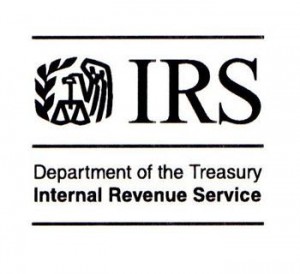The IRS maintains pre-approved plan programs (1) for retirement plans described in I.R.C. § 401(a) (qualified plans), and (2) for annuity contracts or custodial accounts described in I.R.C. § 403(b) (403(b) plans). A new chart shows what types of plans are and are not eligible to use the pre-approved plan program.
Tag Archives: qualified plans
New chart: Pre-approved Plan Eligibility Checklist
New article: Pre-approved Plan Design and Compliance
(Posted on December 5, 2023 by Carol V. Calhoun)
With the IRS cutting back on determination letters for individually designed plans, more and more employers are switching to pre-approved plans. An article recently published in the Lexis Practice Advisor, Pre-Approved Plan Design and Compliance, discusses practical considerations involved with such plans. Topics include:
- Pre-approved Plan Designs and Favored Regulatory Status
- General Advantages and Disadvantages of Pre-approved Plans
- Types and Requirements of Pre-Approved Plans
- Limitations on Plans That May Be Pre-approved
- Pre-approved Plan Providers
- Implementing Pre-Approved Plans
- Obtaining IRS Opinion Letters
IRS Announces 415 and Other Limits for 2024
(Posted on November 20, 2023 by Carol V. Calhoun)
The Internal Revenue Service has issued IRS Notice 2023-75, 2023–47 IRB 1256, setting out the limits on benefits and contributions for 2024. As expected, the limits rose, but not as steeply as last year. Maximum deferrals under a 401(k) or 403(b) plan rose from $22,500 to $23,000, while maximum benefits under a defined benefit plan rose from $265,000 to $275,000.
A chart showing details, and limits from 1996 to 2024, can be found at this link.
Fifth Edition of the Governmental Plans Answer Book Published
(Posted on June 9, 2023 by Carol V. Calhoun)
The Fifth Edition of the Governmental Plans Answer Book has now been published. The Governmental Plans Answer Book is the only full-length treatise on the law governing the retirement plans that federal, state, and local governments maintain for their employees. The law has changed a lot since the Fourth Edition was published in 2017, and the new edition has been updated to reflect them.
The Fifth Edition of Governmental Plans Answer Book gives subscribers the most relevant, current, and practice-oriented answers to the issues faced daily by plan administrators, attorneys, actuaries, consultants, accountants, and other pension professionals as they navigate the requirements and procedures involved in administering their plans. It examines the following significant changes and case law in this area: Read more.
Comparison of 457(b) Plans, 401(k) Plans, 403(b) Plans, and Deemed IRAs Updated
(Posted on November 24, 2022 by Carol V. Calhoun)
The Comparison of 457(b) Plans, 401(k) Plans, 403(b) Plans, and Deemed IRAs chart has now been updated to reflect recent developments, including:
- 2023 limits on contributions and benefits
- Changes in the Employee Plans Compliance Resolution System (EPCRS)
- Changes in the IRS determination letter program for 401(k) plans
- Addition of an IRS determination letter program for individually designed 403(b) plans
- The IRS opinion letter program for pre-approved 403(b) plans
New Benefits Guide: Government and Tax-Exempt Organizations
(Posted on December 30, 2020 by Carol V. Calhoun)
Carol V. Calhoun has written a Benefits Guide entitled “Government and Tax-Exempt Organizations” for Bloomberg Law. The Bloomberg Law Benefits Guide is intended to be a resource for non-benefits practitioners that is easy to understand and explains complex topics in a straightforward way. Ms. Calhoun’s guide covers the types of plans maintained by governmental and tax-exempt organizations, determination of whether a plan is governmental, legal requirements and restrictions, and correction methods in case of errors in administration. The Benefits Guide is available to Bloomberg subscribers, or a copy of Ms. Calhoun’s chapter is available at this link.
IRS Issues Self-Assessment Forms for Federal, State, and Local Government Employers
(Posted on July 10, 2017 by Carol V. Calhoun)
 The IRS has now issued a series of forms to enable federal, state, and local governments to assess their compliance with federal tax statutes, and has set forth some common errors found in examining such employers. Several of the forms relate to employee benefits issues, and may be of assistance to governments trying to ensure that they comply with all legal requirements.
The IRS has now issued a series of forms to enable federal, state, and local governments to assess their compliance with federal tax statutes, and has set forth some common errors found in examining such employers. Several of the forms relate to employee benefits issues, and may be of assistance to governments trying to ensure that they comply with all legal requirements.
The forms are as follows:
For use by Federal, State and Local Government Entities
- Form 14581-A Fringe Benefits Compliance Self-Assessment
- Form 14581-B International Issues Compliance Self-Assessment
- Form 14581-D Other Tax Issues Compliance Self-Assessment
- Form 14581-G Worker Status Compliance Self-Assessment
For use by State and Local Government Entities Only
Webinar – Phased Retirement Programs: Exploring the Issues
(Posted on December 5, 2016 by Carol V. Calhoun)
 Phased retirement has become increasingly popular among two groups of employees: those who would like to begin easing away from work at a younger age, and those who need to continue working at older ages but require a less demanding schedule. We recently conducted a webinar to help employers identify the situations in which phased retirement may be beneficial, and structure phased retirement arrangements in such a way as to avoid the practical and legal pitfalls.
Phased retirement has become increasingly popular among two groups of employees: those who would like to begin easing away from work at a younger age, and those who need to continue working at older ages but require a less demanding schedule. We recently conducted a webinar to help employers identify the situations in which phased retirement may be beneficial, and structure phased retirement arrangements in such a way as to avoid the practical and legal pitfalls.
The PowerPoint presentation for the webinar is now available at this link.
A Trump Presidency: What Does It Mean for Employee Benefits?
(Posted on November 29, 2016 by Carol V. Calhoun)
 Based on both campaign promises and Donald Trump’s plans for his first 100 days, a Trump presidency is likely to make major changes in employee benefits law. The most significant ones are likely to be:
Based on both campaign promises and Donald Trump’s plans for his first 100 days, a Trump presidency is likely to make major changes in employee benefits law. The most significant ones are likely to be:
- Major changes in the Affordable Care Act (although the timing and extent of such changes are unclear), combined with expansion of health savings accounts.
- Postponement or elimination of the recently issued Department of Labor fiduciary regulations.
- Loosening of executive compensation rules.
- Further cutbacks in IRS guidance and audit activity.
- Increased hostility to consideration of noneconomic factors in selecting retirement plan investments.
- Diminished enforcement of protections for LGBT employees.
- Increased activity at the state level, including establishment of state-sponsored retirement plans for private employers.
These issues, and others of less general concern, are discussed below. Read more.
Department of Labor Issues Final Guidance on Investment Advice to Employee Benefit Plans
(Posted on April 8, 2016 by Carol V. Calhoun)
 On April 8, 2016, the Department of Labor (“DOL”) issued final guidance dealing with investment advice to ERISA plans and their participants. While this guidance does not by its terms apply to governmental and church plans (which are not subject to ERISA), such plans often use DOL guidance as an indication of best practices which they will follow. Moreover, the DOL suggests that a breach of contract claim may be available to enforce the standards with respect to individual retirement accounts (“IRAs”), which are not subject to ERISA. While the DOL has no authority to regulate governmental and church plans, it has laid out a road map which state courts may use to impose liability on governmental and church plans under a breach of contract theory.
On April 8, 2016, the Department of Labor (“DOL”) issued final guidance dealing with investment advice to ERISA plans and their participants. While this guidance does not by its terms apply to governmental and church plans (which are not subject to ERISA), such plans often use DOL guidance as an indication of best practices which they will follow. Moreover, the DOL suggests that a breach of contract claim may be available to enforce the standards with respect to individual retirement accounts (“IRAs”), which are not subject to ERISA. While the DOL has no authority to regulate governmental and church plans, it has laid out a road map which state courts may use to impose liability on governmental and church plans under a breach of contract theory.
